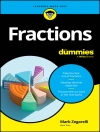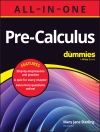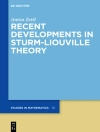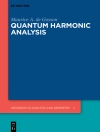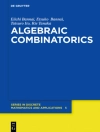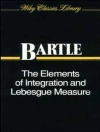Large-scale data processing is important. Most successful applications of m- ern science and engineering, from discovering the human genome to predicting weather to controlling space missions, involve processing large amounts of data and large knowledge bases. The corresponding large-scale data and knowledge processing requires intensive use of computers. Computers are based on processing exact data values and truth values from the traditional 2-value logic. The ability of computers to perform fast data and knowledgeprocessingisbasedonthehardwaresupportforsuper-fastelementary computer operations, such as performing arithmetic operations with (exactly known) numbers and performing logical operations with binary (“true”-“false”) logical values. In practice, we need to go beyond exact data values and truth values from the traditional 2-value logic. In practical applications, we need to go beyond such operations. Input is only known with uncertainty. Let us ?rst illustrate this need on the example of operations with numbers. Hardware-supported computer operations (implicitly) assume that we know the exact values of the input quantities. In reality, the input data usually comes from measurements. Measurements are never 100% accurate. Due to such factors as imperfection of measurement – struments and impossibility to reduce noise level to 0, the measured value x of each input quantity is, in general, di?erent from the (unknown) actual value x of this quantity. It is therefore necessary to ?nd out how this input uncertainty def ?x = x ?x = 0 a?ects the results of data processing.
Inhaltsverzeichnis
Keynote Addresses.- An Algebraic Approach to Substructural Logics – An Overview.- On Modeling of Uncertainty Measures and Observed Processes.- Statistics under Interval Uncertainty and Imprecise Probability.- Fast Algorithms for Computing Statistics under Interval Uncertainty: An Overview.- Trade-Off between Sample Size and Accuracy: Case of Static Measurements under Interval Uncertainty.- Trade-Off between Sample Size and Accuracy: Case of Dynamic Measurements under Interval Uncertainty.- Estimating Quality of Support Vector Machines Learning under Probabilistic and Interval Uncertainty: Algorithms and Computational Complexity.- Imprecise Probability as an Approach to Improved Dependability in High-Level Information Fusion.- Uncertainty Modelling and Reasoning in Knowledge-Based Systems.- Label Semantics as a Framework for Granular Modelling.- Approximating Reasoning for Fuzzy-Based Information Retrieval.- Probabilistic Constraints for Inverse Problems.- The Evidential Reasoning Approach for Multi-attribute Decision Analysis under Both Fuzzy and Interval Uncertainty.- Modelling and Computing with Imprecise and Uncertain Properties in Object Bases.- Rough Sets and Belief Functions.- Several Reducts in Dominance-Based Rough Set Approach.- Topologies of Approximation Spaces of Rough Set Theory.- Uncertainty Reasoning in Rough Knowledge Discovery.- Semantics of the Relative Belief of Singletons.- A Lattice-Theoretic Interpretation of Independence of Frames.- Non-classical Logics.- Completions of Ordered Algebraic Structures: A Survey.- The Algebra of Truth Values of Type-2 Fuzzy Sets: A Survey.- Some Properties of Logic Functions over Multi-interval Truth Values.- Possible Semantics for a Common Framework of Probabilistic Logics.- A Unified Formulation of Deduction, Induction and Abduction Using Granularity Based on VPRS Models and Measure-Based Semantics for Modal Logics.- Information from Inconsistent Knowledge: A Probability Logic Approach.- Fuzziness and Uncertainty Analysis in Applications.- Personalized Recommendation for Traditional Crafts Using Fuzzy Correspondence Analysis with Kansei Data and OWA Operator.- A Probability-Based Approach to Consumer Oriented Evaluation of Traditional Craft Items Using Kansai Data.- Using Interval Function Approximation to Estimate Uncertainty.- Interval Forecasting of Crude Oil Price.- Automatic Classification for Decision Making of the Severeness of the Acute Radiation Syndrome.


